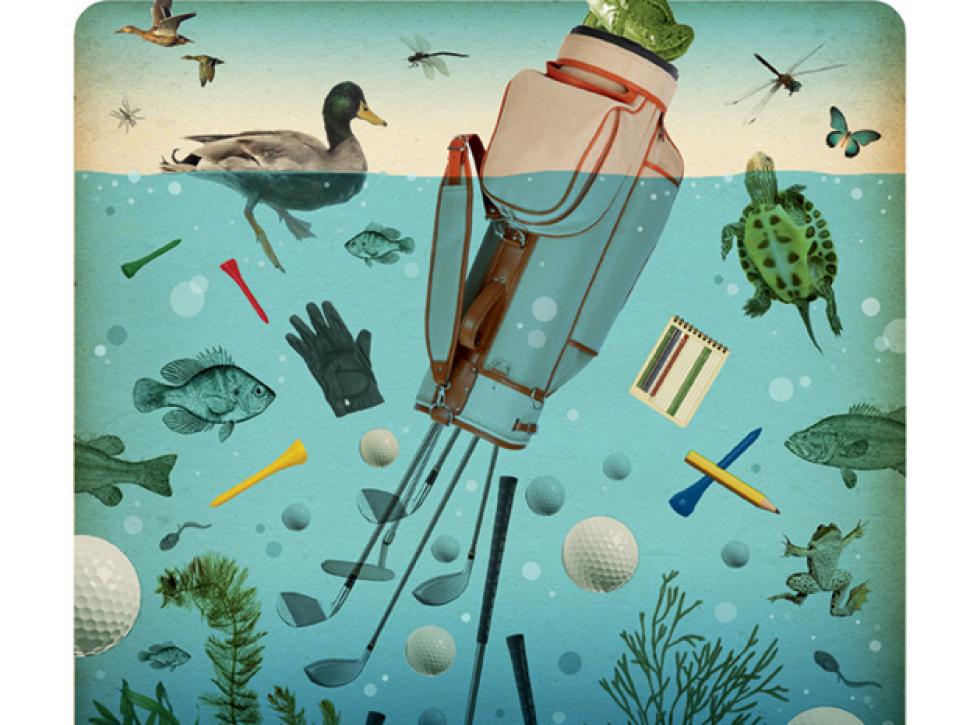News
The Undercover Tour Pro

It's no secret that PGA Tour caddies have tenuous job security. These guys get canned all the time. For talking too much to not talking enough, for picking a wrong club to being too fidgety, to just plain because. I know players who like to change caddies every three months just to stay fresh. Some caddies overestimate their importance, and it'll take a rookie a full year to realize he's being over-caddied. What fans might not realize, though, is that it's a two-way street. Caddies fire players, too. I've made more than $20 million in my career, and I've been shown the pink slip by my bagman.
Last time I got the heave-ho was a couple years ago. I made more cuts than I missed that season, but by my standards, I was in a slump. On Tuesday of a tournament week, my caddie—whom I'd employed for years—told me he had something to say. It was late afternoon, and we were walking through the parking lot. We stopped. A player who was a lock to get into the FedEx Cup and a few other big events had offered him a job.
I was shocked. We'd had some bad weeks, but I didn't see this coming. To his credit, he told me to my face instead of sending a text, like a lot of caddies and players will do. I told him I couldn't stop him from taking it. He said he knew an available caddie he thought I'd work well with, at least for the week, so I wasn't completely in the lurch. We shook hands, then I grabbed my bag and carried it to the car. As a guy who's won on some big stages, a moment like this can ring your bell.
My wife thought it was bogus of my caddie, who'd become like a part of our family, to do this during a tournament week. She's really cool, though I've seen some wives get ripping mad when they feel their husband has been relieved with inconvenient timing. It can be an odd dynamic between a caddie, a player and a player's wife. There are some wives who insist on approving the hire of a caddie before a player does, but that's only under the bossiest of circumstances.
At the 2007 Canadian Open, Jay Williamson's caddie, Mike Mollet, dumped Williamson's golf balls into a pond and stormed off the course after 14 holes. (Exactly who fired whom remains a point of contention.) Their relationship had been deteriorating for a while, and people knew it. When there's simmering tension in a group, your caddie will usually fill you in, which can spice up an otherwise boring round.
When you've been out here long enough, you learn not to take firings personally. Golf's a business, and inevitably you're going to wind up in the same group with former coworkers. If you hold a grudge against an old caddie or the player who hired him, it's only going to affect your game. And it's important to remember that caddies live under way more uncertainty than players, so you really can't begrudge any decision they make. They're always hanging out in the parking lots of qualifying events, working phones, scrambling to figure out who's injured or whose friend didn't show up, anything to get on a bag. They'll say, "What's the weight?" meaning how much will they get paid. These days, $1,300 to $1,800 per week is a typical base salary on the PGA Tour. Some players pay "5-7-10" (5 percent of a check for a made cut, 7 percent for a top-10 finish and 10 percent for a win), though 8 percent across the board is becoming more common. So if a top-five finish pays $377,000, the caddie's take for the week, including base and an 8-percent bonus, is approaching $32K. There are probably 15 or 20 very top players who pay their caddie an annual salary, with bonuses sprinkled here and there.
My current caddie is fantastic. But if a Dustin Johnson or Jordan Spieth offered him a job tomorrow, I'd tell him he'd be crazy not to take it. No hard feelings.